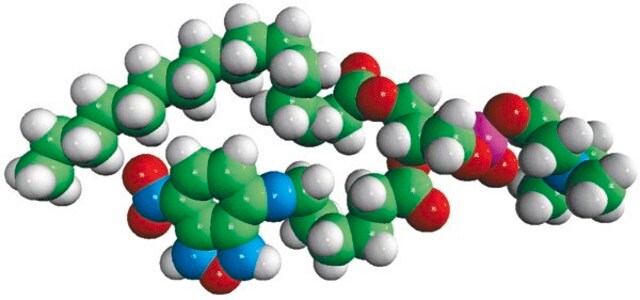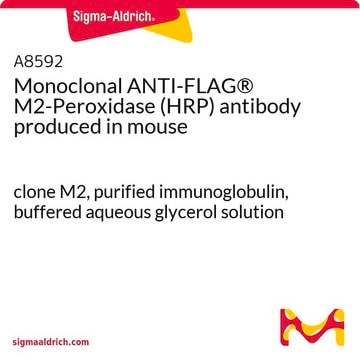SML0075
OBAA
≥98% (HPLC)
Synonym(s):
3-(4-octadecyl)benzoylacrylic acid, 4-(4-octadecylphenyl)-4-oxo-2-Butenoic acid
About This Item
Recommended Products
Assay
≥98% (HPLC)
form
powder
storage condition
desiccated
color
white to tan
solubility
DMSO: ≥5 mg/mL at 60 °C
storage temp.
2-8°C
InChI
1S/C28H44O3/c1-2-3-4-5-6-7-8-9-10-11-12-13-14-15-16-17-18-25-19-21-26(22-20-25)27(29)23-24-28(30)31/h19-24H,2-18H2,1H3,(H,30,31)
InChI key
ZBESASFHIWDSCJ-UHFFFAOYSA-N
Application
Biochem/physiol Actions
Features and Benefits
Storage Class Code
11 - Combustible Solids
WGK
WGK 3
Flash Point(F)
Not applicable
Flash Point(C)
Not applicable
Certificates of Analysis (COA)
Search for Certificates of Analysis (COA) by entering the products Lot/Batch Number. Lot and Batch Numbers can be found on a product’s label following the words ‘Lot’ or ‘Batch’.
Already Own This Product?
Find documentation for the products that you have recently purchased in the Document Library.
Articles
Phospholipase A2 (PLA2) enzymes hydrolyze glycerophospholipids, yielding arachidonic acid; inhibition targets eicosanoid biosynthesis.
Phospholipase A2 (PLA2) enzymes hydrolyze glycerophospholipids, yielding arachidonic acid; inhibition targets eicosanoid biosynthesis.
Phospholipase A2 (PLA2) enzymes hydrolyze glycerophospholipids, yielding arachidonic acid; inhibition targets eicosanoid biosynthesis.
Phospholipase A2 (PLA2) enzymes hydrolyze glycerophospholipids, yielding arachidonic acid; inhibition targets eicosanoid biosynthesis.
Our team of scientists has experience in all areas of research including Life Science, Material Science, Chemical Synthesis, Chromatography, Analytical and many others.
Contact Technical Service







